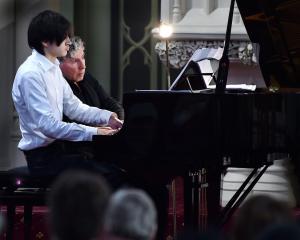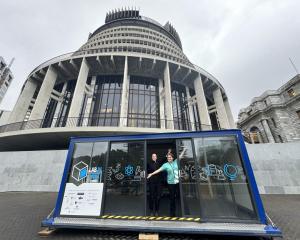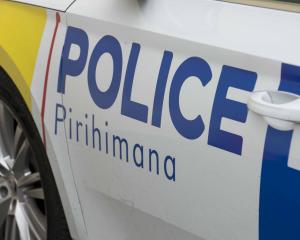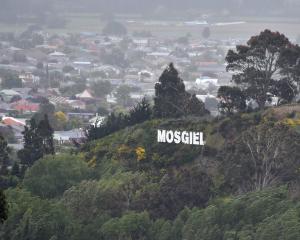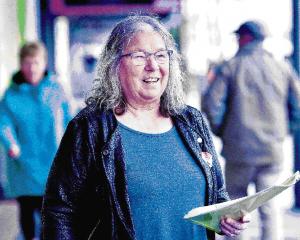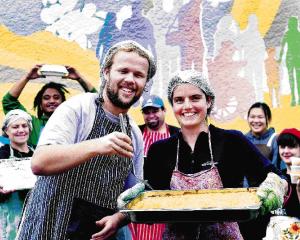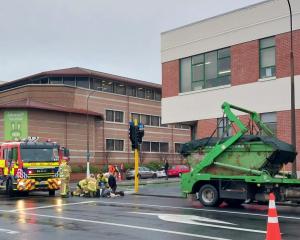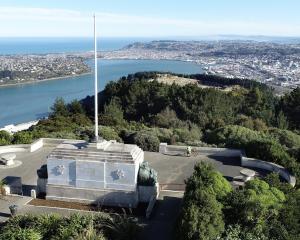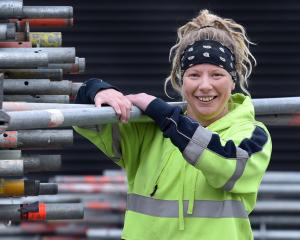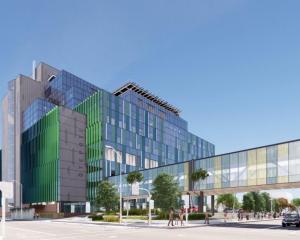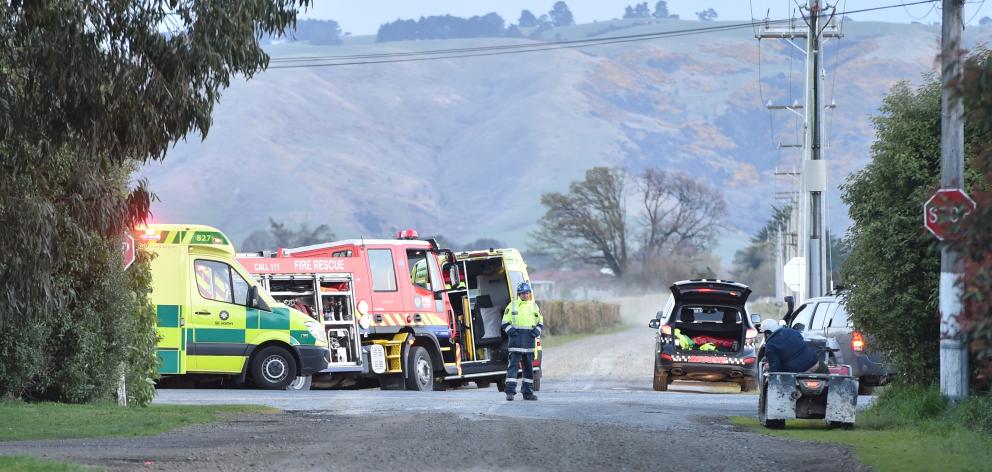
A teen driver in his new ute driving in Church Rd West, passed through the intersection with Huntly Rd directly into the path of a Holden on September 17, 2019.
His passenger Jayde Cummings (15) and the driver of the other vehicle 57-year-old Steve Macnee (57) died at the scene.
The teenage survivor – who has permanent name suppression - was convicted of two counts of careless driving causing death and was granted an absolute discharge in the Youth Court.
Just three months before the collision, a nearby resident complained to the council about the overgrown foliage at the site but her concerns were dismissed by a Dunedin City Council (DCC) graduate transport engineer who assessed the site.
An inquiry before Coroner Marcus Elliott began at the Dunedin District Court this morning and will focus on signage, road markings and vegetation – the responsibility of the DCC – and how they may have contributed to the crash.
The inquest heard from forensic engineer Dr Tim Stevenson this afternoon who visited the crash site in June 2020.
He said the initial stop-ahead warning sign should have been "readily visible" but identified problems with almost all other safety features.
The two stop signs beside the intersection were too small, too far from Huntly Rd and at least partly hidden by roadside foliage at the time of the collision, Dr Stevenson said.
The painted road markings were also "less than ideal".
The stop message and the limit line were and not as visible as they should have been, due to wear and road-surface contamination, he said.
Police serious crash expert Constable Jack McGilbert was similarly critical.
He attended the scene shortly after the incident and noted the "large uncut hedges at the corner of the intersection", restricting the view of traffic in Huntly Rd from Church Rd West.
"I was quite surprised this was an open road, 100kmh," he told the inquiry.
When asked what measures he would employ to improve safety at the site, he suggested more signage or more road markings painted yellow.
"Just making the intersection look like an intersection," Const McGilbert said.
A Huntly Rd resident had contacted the DCC to voice her concerns about the site in June 2019.
She received a response less than a month later to say there were no issues and immediately replied, describing how her husband had to drive his grader partially into the road to see oncoming traffic.
The former council staffer involved told the court yesterday that he did not check the visibility of stop signs on the approach to the intersection because he was not looking at it from "a specific road-safety aspect".
With the experience he had since gathered in a different role he said he would now be more cognisant of the wider picture.
"I would’ve done much more," he said.
At the hearing’s outset, Jayde’s father Mark, who has been vocal about the Dunedin City Council’s (DCC) perceived shortcomings, said in a statement the loss of his daughter had "left a huge hole in our lives".
He described her as "fearless", and recalled how she took to riding motorbikes at 4 and horses at 7.
"Jayde was a great believer in making memories . . . Because of those, we can smile at the life she lived so well. We miss her every minute of every day."
Coroner Elliott warned much of the evidence heard this week would be technical in nature.
"I want to assure you all . . . that Jayde and Steve will remain at the forefront of our minds the whole time. Their losses are what bring us here together and their memory helps us to do this difficult work, together."
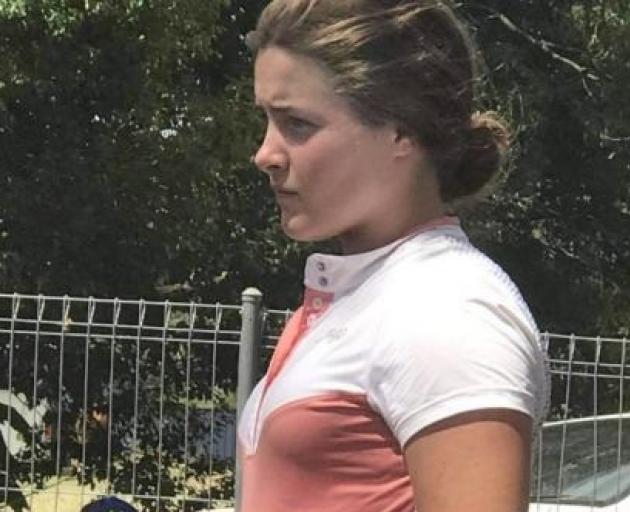
Stop sign focus of Outram double-fatal inquiry
The inquiry, before Coroner Marcus Elliott at the Dunedin District Court which began this morning, will scrutinise the visibility of stop signs in the area and the trimming of vegetation.
"One of the important functions of the Coroner’s court is to try to find ways to reduce the chance of deaths happening in similar circumstances and prevent suffering in the same sort of way," he said.
The inquiry heard the ute driver, who had only bought the vehicle three days earlier, had been on a restricted licence for four months.
CCTV captured him and Jayde, wearing seatbelts, travelling through Outram shortly before the crash.
There were no witnesses to the incident and the teen driver had no memory of the events.
A crash investigation found no skid marks on the road, indicating the teen driver had not braked when he approached.
A Huntly Rd resident had contacted the DCC to voice her concerns in June 2019.
She received a response less than a month later to say there were no issues with the intersection.
She told the inquest today that she immediately responded to stress her disagreement, describing how her husband had to drive his grader partially into the road to see any oncoming traffic.
With the vegetation the way it was, she said, inexperienced drivers may have been unaware of Huntly Rd’s existence.
The former DCC engineer who conducted the review of the intersection said the foliage encroachment from private properties was not significant enough to issue notices to have it cut back.
After his conclusion was disputed, he said he returned and drove through the area three more times, which he said confirmed his original assessment.
A stop sign in Church Rd West – which was replaced by the DCC more than two years after the crash - was undersized at the time by modern standards.
Counsel Sarah McClean said there was no legal obligation for the council to replace the old signage and it was policy only to do so when it reached the end of its useful life.
Coroner Elliott warned the family much of the information to be aired this week would be intricate.
"The evidence we’re going to hear will primarily relate to the safety of the intersection at which they died and will at times be quite technical and dispassionate," he said.
"I want to assure you all . . . that Jayde and Steve will remain at the forefront of our minds the whole time. Their losses are what bring us here together and their memory helps us to do this difficult work, together."

